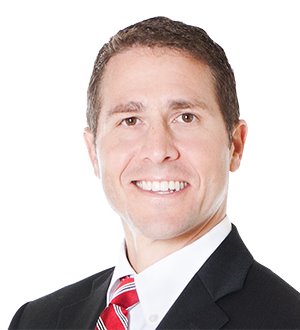Supreme Court Affirms Title VII Administrative Exhaustion Defense Must Be Timely Raised
Executive Summary: In a much anticipated decision to settle a significant split between the federal appellate circuits, the Supreme Court held on Monday that Title VII’s requirement that a plaintiff file a charge of discrimination with the EEOC prior to filing suit in federal district court is a procedural, not jurisdictional, requirement “that must be timely raised to come into play.” See Fort Bend County, Texas v. Davis (June 3, 2019). Siding with the majority of federal appellate circuit courts, the Supreme Court found that “jurisdictional” prescriptions are usually reserved to determine the classes of cases the court can entertain, and over whom the court may exercise authority, while procedural prescriptions fall more in line with “claim-processing rules and other preconditions to relief.” Accordingly, the Court concluded that Title VII’s administrative exhaustion requirement, while mandatory, is merely procedural, and requires defendants to timely raise the defense or else waive it.
Background: In March 2011 Lois Davis filed an EEOC charge claiming Fort Bend County, Texas subjected her to harassment and retaliation. Shortly thereafter, the county terminated Davis for failing to work on a Sunday morning, despite her request to switch shifts with a co-worker due to a prior obligation at her church that morning. Davis then attempted to supplement her EEOC intake questionnaire by hand-writing “religion,” and checking the boxes for “discharge” and “reasonable accommodation” on that form. Davis did not, however, amend her EEOC Charge to reflect these new allegations. Several months later, Davis received a right to sue notice from the EEOC, and sued Fort Bend County alleging harassment, retaliation, and religious discrimination.
At the trial stage, the lower court granted summary judgment in favor of Fort Bend County, which Davis appealed to the Fifth Circuit. The appellate court upheld summary judgment on Davis’ retaliation claim, but reversed and remanded her religious discrimination claim. Fort Bend County filed for certiorari with regard to the Fifth Circuit’s reversal, but the Supreme Court denied that request. When the case arrived back in the trial court, Fort Bend County moved, for the first time, to dismiss Davis’ complaint, arguing that the court lacked jurisdiction to hear her religious discrimination claim because she had not exhausted her administrative remedies with the EEOC on that claim. The court agreed, dismissing Davis’ claim on this basis, but the Fifth Circuit reversed the lower court, holding the administrative exhaustion requirement is not a “jurisdictional” requirement, but rather a “prudential prerequisite” to suit that Fort Bend County waived by failing to raise in a timely fashion. Fort Bend County sought Supreme Court review and, this time, the Court granted certiorari to answer the question “Is Title VII’s charge-filing precondition to suit a “jurisdictional” requirement that can be raised at any stage of a proceeding; or is it a procedural prescription mandatory if timely raised, but subject to forfeiture if tardily asserted?”
The Supreme Court unanimously held that Title VII’s administrative exhaustion requirement is a waivable affirmative defense when not timely raised, affirming the Fifth Circuit’s decision, which aligns with that of a majority of federal appellate circuits. Specifically, the Supreme Court held that “jurisdictional” requirements are more akin to questions about what issues a court may hear, or over whom the court can exercise authority, which may be properly raised at any time during litigation, or sua sponte by a court. Title VII’s prescriptions, however, “d[o] not speak to a court’s authority,” or “refer in any way to the jurisdiction of the district courts.” Rather, they merely “require complainants to submit information to the EEOC and to wait a specified period before commencing a civil action.” Accordingly, the Supreme Court held that Title VII’s administrative exhaustion requirement is “‘mandatory’ in the sense that a court must enforce the rule if a party ‘properly raise[s]’ it.”
Bottom Line for Employers: While many employers already reside within a “waivable affirmative defense” jurisdiction and will not see a change in their litigation requirements or strategy, all employers and defense counsel now must remain vigilant to understand the claims brought before the EEOC compared to those brought in federal court, and to raise the proper affirmative defense in a timely manner to avoid waiving a dispositive defense.
If you have any questions regarding this Alert, please contact the authors, Mark Stamelos, mstamelos@fordharrison.com, managing partner of our Nashville office. Of course, you may also contact the FordHarrison attorney with whom you usually work.
































